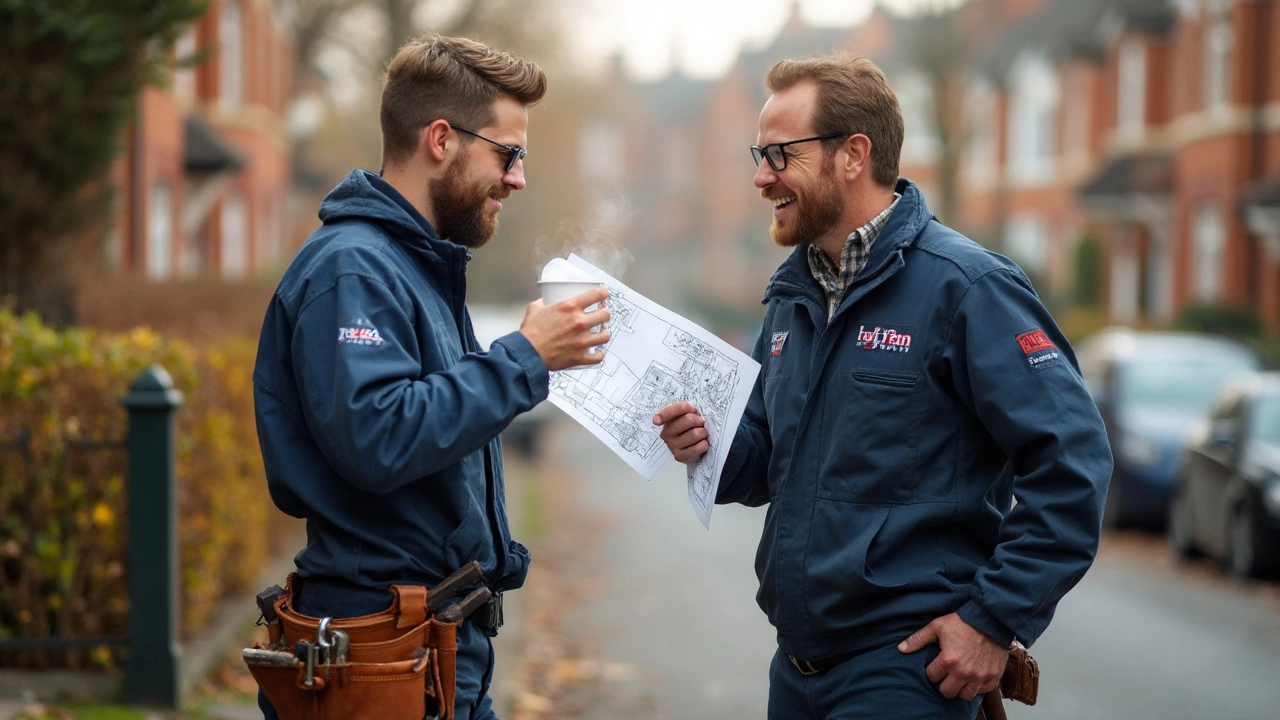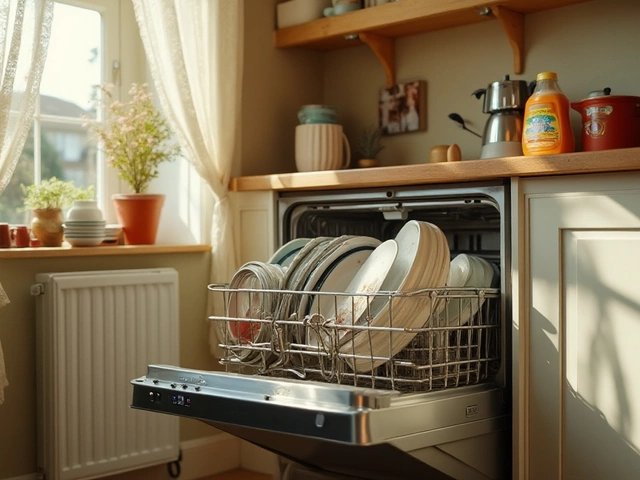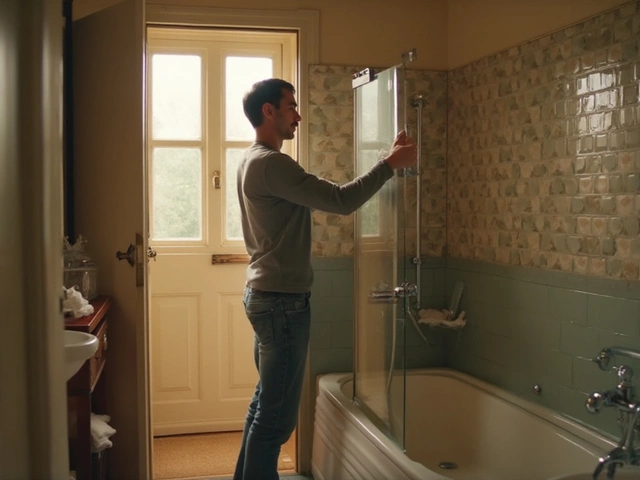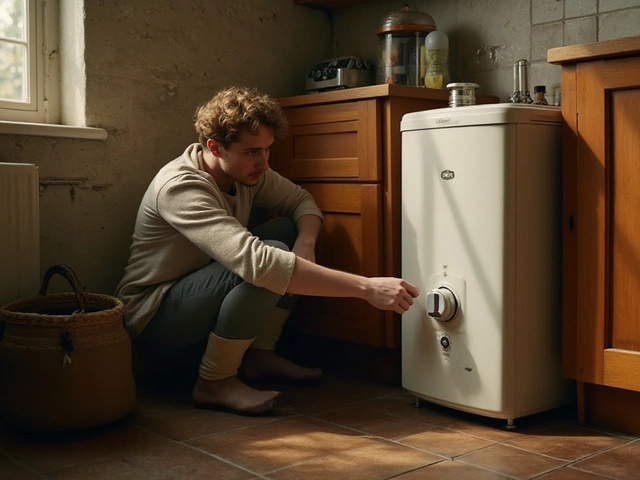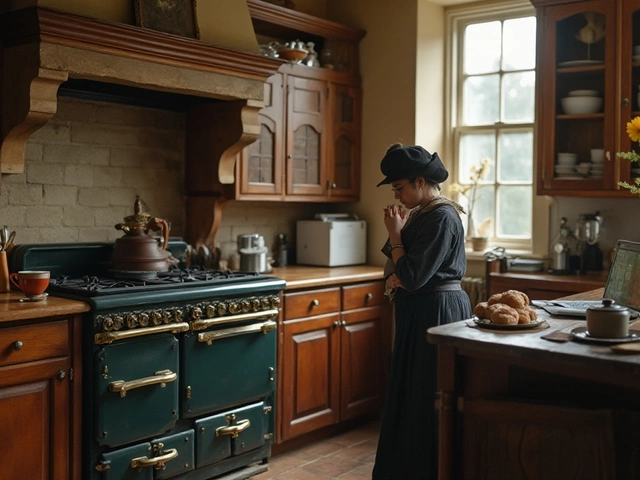If your boiler has ever conked out on a frosty February morning, you might've found yourself wondering, 'Should I be calling a plumber or someone else?' It's a good question, and surprisingly, not everyone knows the answer.
Plumbers are generally the first professionals people think of for anything involving water pipes, leaks, or drainage issues. But when it comes to boilers, things get a bit more nuanced. While many plumbers are skilled in general heating and cooling, not all are qualified to handle complex boiler systems. This means it's crucial to figure out whether your local plumber has the expertise you need, or if someone else is better suited for the job.
- What Plumbers Really Do
- Boiler Specialists: Do You Need One?
- When to Call a Plumber for Boiler Issues
- Tips for Maintaining Your Boiler
What Plumbers Really Do
When you think of a plumber, the first image that might come to mind is someone fixing a leaky faucet or unclogging a stubborn drain. But their skills go way beyond just fixing pipes and taps. Most plumbers are trained to handle everything related to your home’s water system.
Plumbers are quite literally the backbone of your home's comfort, dealing with the installation and maintenance of pipes, sinks, toilets, showers, and even the quirks of your garbage disposal. They're your go-to squad for any issues with your water line, ensuring clean water flows in and wastewater exits efficiently.
Plumbing and Heating Systems
Now, here’s where it gets interesting in the context of boilers. Many homeowners assume plumbers can automatically fix any heating system issue. However, while plumbers do receive some degree of training in heating systems, their main focus usually stays on water and gas lines. Yet, some plumber heroes specialize further, tackling both the piping and the boiler repair arena.
Special Skills and Certifications
If you're dealing with a complicated heating system issue, look for plumbers who have additional certifications in gas or heat systems. They're often referred to as 'heating engineers' and usually come with extra credentials showing their expertise in dealing with complex boiler systems.
This isn't just about fixing—it includes understanding intricate systems unique to different boiler models. This specialized training often requires licensure or certification because of safety and efficiency concerns.
Common Plumbing Tasks
- Repairing or replacing pipes and fixtures.
- Unclogging drains and pipes.
- Installing and repairing water heaters.
- Maintaining and inspecting sewer lines.
Overall, calling a plumber for a boiler issue isn't entirely off the mark, but it's like going to a general doctor versus a specialist. They can help with certain problems, but for intricate exams, a specialist might be your best bet.
Boiler Specialists: Do You Need One?
So, you might be thinking, 'Do I really need a specialist for my boiler?' The answer often depends on what's exactly wrong. Let's break it down a bit.
Boiler specialists are pros specifically trained to handle the quirks of different boiler systems. They have the know-how for detailed diagnostics, ensuring your system runs safely. When dealing with complex issues, like pressure problems or strange noises that your boiler's emitting, these specialists are your best bet.
When to Call a Boiler Specialist
Here are some specific situations where calling a specialist is your safest bet:
- Your boiler isn't heating up consistently, and the house feels like the Arctic.
- You notice unusual smells or sounds, which could signal a gas leak or another hazardous situation.
- The pressure gauges are off, and you’ve got no clue how to fix it.
DIY? Think Twice
Tempted to fix it yourself? Unless you're familiar with boiler repair, it's better to leave the tricky bits to the pros. One wrong turn of a wrench could lead to way more damage (and expense) than you started with.
Here’s a little relatable fact: around 78% of people opt for a boiler repair specialist over a general handyman to ensure their gadgets are in good hands. It’s a smart call, given the complicated tech inside modern heating systems.
Finding the Right Specialist
Look for certifications like Gas Safe or other local equivalents. These badges assure competence and safety, so you know you’re not just hiring someone with a toolbox and a dream. Online reviews and local recommendations are invaluable too.
In summary, when in doubt, skip the guesswork and opt for someone who's seen it, fixed it, and can guarantee your boilers are running like a dream. It might just keep your home warm, safe, and stress-free.
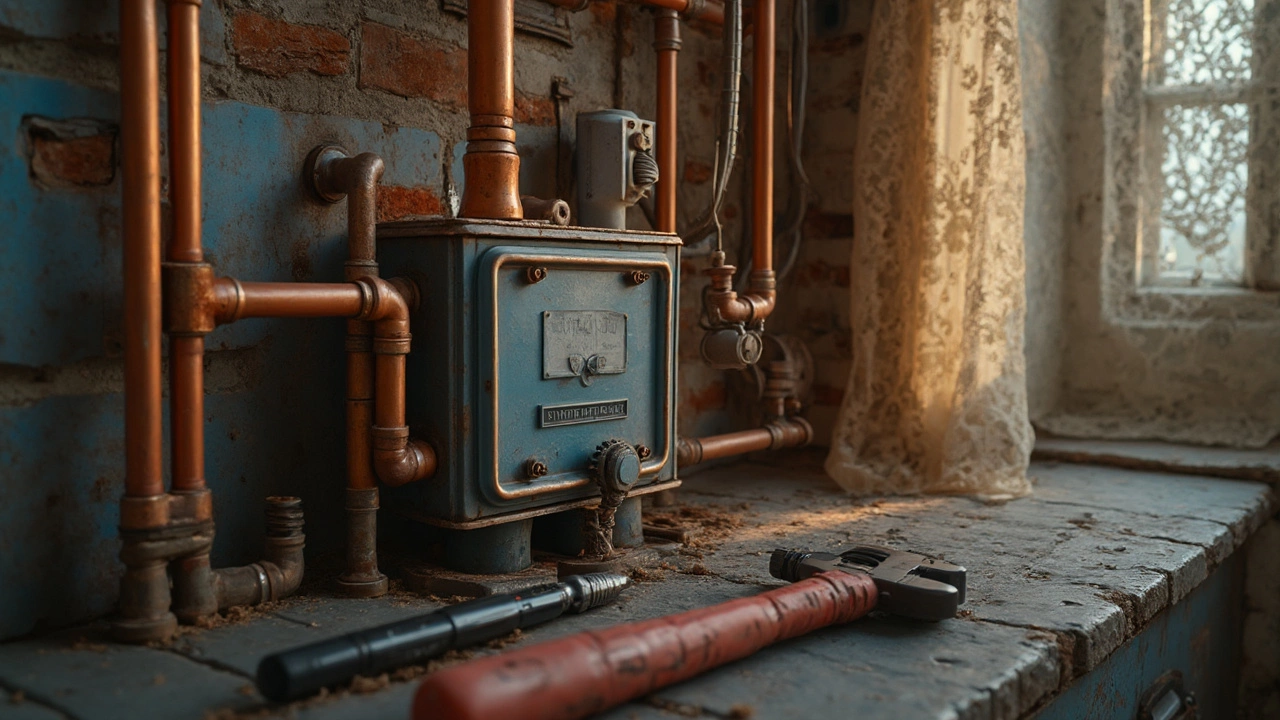
When to Call a Plumber for Boiler Issues
So, you're feeling the chill and suspect your boiler's acting up. First step: Relax. Not every boiler mishap calls for full-on panic mode. Sometimes, a trusty plumber might be your best bet for a quick fix, especially if the problem is tied to water or pipe connections.
Common Issues Plumbers Can Handle
One classic case is if you have a leaking boiler. If you see puddles forming underneath or near the unit, it's often a sign of a loose connection or a dodgy seal, both of which are bread and butter for a good plumber. They'll get in there with a wrench and some Teflon tape quicker than you can say 'frozen pipes.'
No hot water? Before you call in a specialist, check small things like the pilot light being off or the thermostat settings. Sometimes, the issue isn't the boiler itself but rather the components distributing the hot water. Plumbers are your go-to folks for these 'simple' complications.
Clear Signs to Call in the Heavy Hitters
If your boiler is making wild, banging noises like it's auditioning for a metal band, that's a red flag. Plumbers might diagnose minor issues, but if the noise is persistent, you might need a dedicated boiler expert. Internal component faults often need someone specialized beyond plumbing.
Knowledge Equals Savings
Understanding what issues lie within the realm of plumbers can save you a whole lot of time and cash. It's all about knowing the nature of the problem. For the most part, if it involves water or leaks, your local plumber is ready to roll. But if things get too technical, don't hesitate to bring in those boiler-specific pros.
Bottom line? Jot down the symptoms, do a bit of homework, and make the call. By playing it smart, you'll fix that boiler issue, getting back to enjoying those cozy evenings with a mug of hot cocoa in hand.
Tips for Maintaining Your Boiler
Maintaining your boiler can help avoid those chilly mornings without heat. There are a few key practices and simple checks you can do to help your boiler run smoothly and efficiently.
Regular Servicing
It's important to have your boiler serviced regularly by a professional. This ensures that any potential issues are caught early before they become major problems. Most manufacturers recommend an annual service, so make sure you stick to it.
Check the Pressure
Keeping the boiler pressure at the right level is essential for optimal functioning. Most boilers have a pressure gauge, and you want it to be in the green zone, typically between 1-2 bars. If it's too low or too high, you might need to bleed the radiators or call a professional.
Bleed Your Radiators
If your radiators are colder at the top than the bottom, it's time to bleed them. This releases trapped air and ensures even heating throughout your home.
Insulate Pipes
Exposed pipes can freeze during winter, causing blockages. Wrapping them with pipe insulation is a simple and inexpensive way to prevent this.
Keep Vents Clear
Make sure the vents and flues are not blocked by debris or built-up grime. This ensures proper air flow and helps the boiler function safely.
Check for Leaks
Keep an eye out for water around the boiler or radiator connections. Leaks can lead to pressure drops and inefficiencies.
Energy Efficiency Stats
Did you know that maintaining your boiler can improve efficiency by up to 10%? This not only keeps your home warmer but can also help in reducing energy bills.
| Maintenance Task | Frequency |
|---|---|
| Professional Service | Annually |
| Check Pressure | Monthly |
| Bleed Radiators | Twice a Year |
| Insulate Pipes | Annually |
By following these simple tips, you can help ensure your boiler lasts longer and works more efficiently, keeping your home cozy without unexpected surprises.

